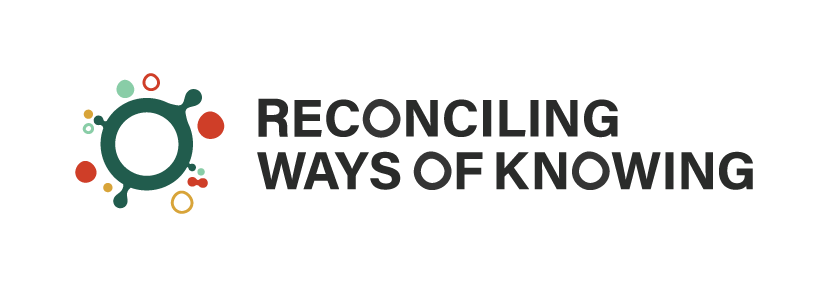Dialogue 1 - Why Reconciling Ways of Knowing?
This online forum originally streamed on July 27, 2020
Panelists:
Elder Dr. Dave Courchene, Jr. - Nii Gaani Aki Innini
Dr. David Suzuki
Miles Richardson, O.C. - Kilslaay Kaajii Sding
Dr. Nancy Turner
Moderated by Valérie Courtois
We begin our digital offerings in a ceremonial spirit ‒ one of the guiding principles of the overarching Reconciling Ways of Knowing project*. In this episode, “Why Reconciling Ways of Knowing,” Elder Dr. Dave Courchene, Jr. acknowledges the spiritual crisis we are collectively in and the need for change, if our species is to survive. It is our hope that this session will underscore the importance of beginning and continuing important projects with Indigenous knowledge keepers and Indigenous knowledge in ceremony. Please read Feeding the Sacred Fire: Highlights from the Spiritual and Ceremonial Gathering at the Turtle Lodge to learn more about the importance of starting in ceremony. The report describes the 2017 Turtle Lodge Gathering of Indigenous Knowledge Keepers and Scientists that launched the subsequent Reconciling Ways of Knowing project.
Many feel we have failed Mother Earth and created systems that she will not allow to continue. It is time to return to our shared origins, recognizing the Earth as a living, life-giving entity with an intelligence we can learn from. It is important, before we continue forward, to take a step back and remember how to listen. The best advice? Go to the land and listen to what Mother Earth wants to tell you. If you feel these ways are not your ways, or this knowledge is lost to you, remember that we are all Indigenous to somewhere.
Indigenous knowledge has understood the wisdom of plants for thousands of years ‒ knowledge that science has only recently begun to corroborate. This wisdom includes the traditional names of plants but also the value a plant carries to heal and to nurture ‒ values that come with an obligation to respect and to give back. If we think of the trees and fish as our generous relatives who provide us with what we need, we see we have an obligation to them.
Indigenous Peoples have been stewards of the land for millennia ‒ a record that no contemporary nation-state, corporation, or research institution can claim. Scientists have gained great insights into the elements and classifications of parts and systems, but are often limited in their ability to explain the interconnections between systems, across places and times. While science divides itself into myriad specialty areas, Indigenous knowledge brings together insights in a holistic way. While scientists diligently strive to remove emotion and subjectivity from their work, their values and their identities are inescapable and absolutely shape their work, despite their best efforts. Although many understand science as more authoritative than Indigenous knowledge, it is important to understand that both are valuable ways of knowing. A respectful relationship between these ways of knowing, that honours and values the long-range, land-based wisdom of Indigenous Peoples alongside science, and that inspires corresponding nation-to-nation relationships, will offer new strategic approaches to the persistent problems we face.
The Reconciling Ways of Knowing committee wants to hear from you! Write to us and tell us what specific actions you would like to see come out of this work. info@waysofknowingforum.ca
Summary by Dr. Kristine Lawson, Reconciling Ways of Knowing
